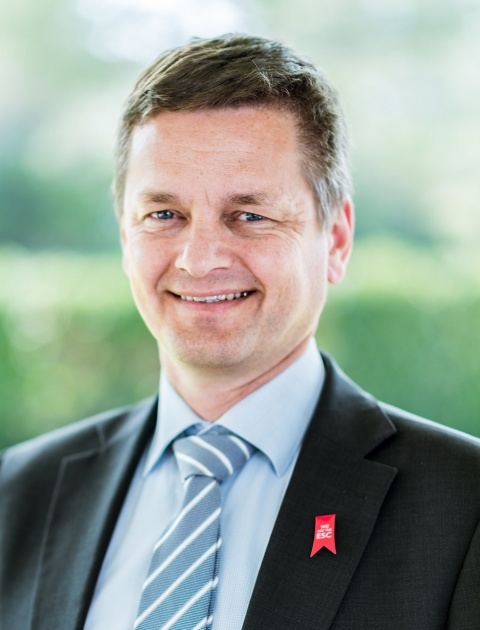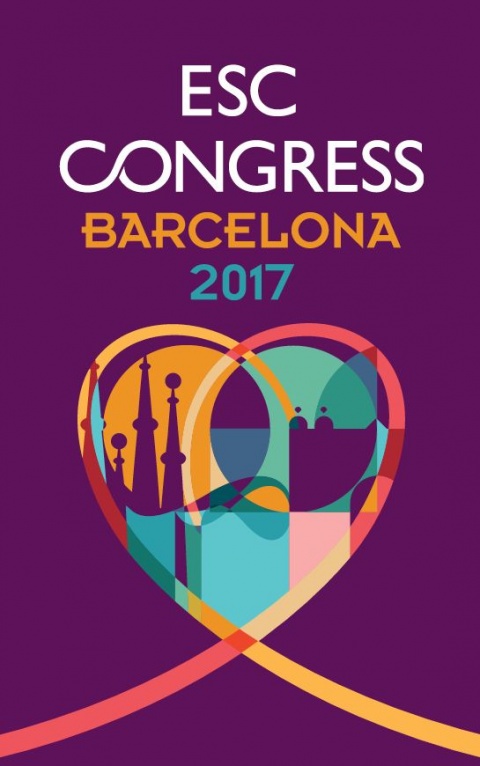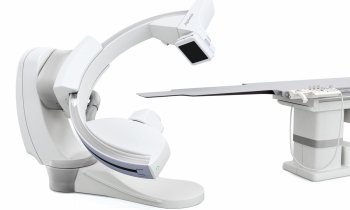Article • ESC Congress 2017
Entering the future of cardiology
With 4,500 accepted abstracts, 600 sessions and 30,000 expected attendees, ESC Congress 2017 is undoubtedly the world’s largest cardiovascular event. On healthcare-in-europe.com, Dr Stephan Achenbach, Congress Program Committee Chairperson, gives an overview of issues and events unfolding in Barcelona from August 26-30.
Report: Mélisande Rouger

During the Congress, explained Stephan Achenbach, the ESC issues guidelines on how to manage patients with cardiovascular disease. 'In 2017 the guidelines focus on how to treat ST myocardial infarction, valve disease, peripheral artery disease and dual antiplatelet therapy, which is very important in coronary intervention.
The Hot Lines presentations are late clinical trials; we have very promising publications, especially in the field of prevention – both primary and secondary. We also commemorate the anniversary of percutaneous coronary intervention. Forty years ago, Andreas Grüntzig performed the first balloon angioplasty of coronary artery stenosis. This year, we’ll learn a lot that’s new about the connection between heart disease and inflammation, considering the huge amount of abstracts received on the topic. Many of our sessions are joint sessions with partners, for instance sister associations such as the American College of Cardiology, the American Heart Association, the Japanese circulatory society, and the Indian and Chinese cardiac societies.
We will also have sessions with subspecialty societies, including European Society of Hypertension and the European Society of CardioVascular Surgery, but also with genetics cardiology, pediatric cardiology, etc. Last, but not least, we will have very interesting sessions with the New England Journal of Medicine, JAG and the Lancet. This is a new addition because digital health is really becoming important in cardiology. We’re cooperating with Mobile World Capital Barcelona, a tremendously large congress on mobile technologies. We will have interactive lecturers sharing their experience of mobile technology in cardiology.

Our challenges arise from the opportunities. Today we have many more options to treat and prevent cardiovascular disease, but they are expensive and we need to find resources and to direct those resources to patients who really need it. I think that’s the challenge. As our opportunities become more complex we have to ensure that they remain economically viable. European research focuses on many aspects, but mainly on the development of percutaneous valve disease treatment, really advancing percutaneous catheter-based treatment of aortic stenosis and percutaneous treatment of other valve disease. Europe really has a leading role there.
Personally I am also involved with imaging, in the context of these new valve treatments, to prepare and guide the procedure and to decide which strategy to use in which patient. Imaging is tremendously important to fix heart disease. There’s a growing interest among cardiologists to use imaging and high-end imaging using computed tomography or magnetic resonance. Europe has this very wide spectrum of high and low-income countries, so the field is very heterogeneous. The ESC has to cater to all these countries.
If you can find fibrillation early, you can prevent stroke
Stephan Achenbach
In terms of trends, Europeans are traditionally early adopters of new technologies, treatments and diagnostic methods. They need to make these strategies economically viable. Issues of data sharing and privacy, and selecting meaningful data are very important in cardiology as in any other field. The ESC has a working group on e-cardiology and the congress will feature sessions on e-cardiology and big data. Data is both a major opportunity and a problem.
The most important and promising indication for wearable devices use is screening for atrial fibrillation because it predisposes to stroke. Some research at the ESC will focus on that aspect. If you can find fibrillation early, you can prevent stroke, so this is a major opportunity for wearable technology, and it has not been looked at extensively yet. In the future there will be other indications, and there will be indications for cardiovascular risk factors such as diabetes and hypertension.
There’s also a new generation of devices that are implanted in patients to monitor physiological parameters. CardioMEMS, for instance, is implanted in one of the lungs of a patient to measure blood pressure inside the organ. It has been shown that patients with heart failure benefit from having such devices implanted.’
Click here to visit the congress website
Profile:
Stephan Achenbach MD graduated from the University of Erlangen Medical School in Germany in 1993. Today he is still there, as Professor of Medicine and chairman of its cardiology department. He has not only held posts in Erlangen, but also in Boston, Maryland, USA, and Giessen, Germany. With main clinical interests in interventional cardiology, general cardiology as well as cardiac imaging and intensive care medicine, Achenbach has authored around 550 publications listed in Medline. Between 2014-2016 he served as Vice President of the European Society of Cardiology (ESC) and is currently a Board Member and Chairperson of the ESC Congress Program Committee.
26.08.2017











